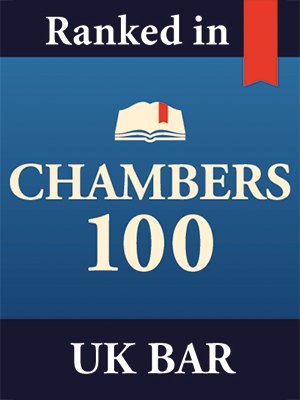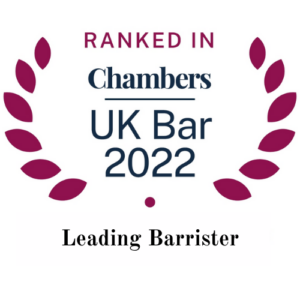If you’re about to start a new business venture or you want to change your existing company structure, you might be wondering about what will work best for your specific situation.
When it comes to structuring your business there really isn’t ‘one size fits all’.
It isn’t a decision you should make in haste; choosing the right business structure can be pivotal as it will determine what responsibilities, liabilities and options you have in the running of your business.
It will also dictate what paperwork you need in order to protect your interests; particularly if you are going into business with other people. Though the unravelling of a relationship may be the last thing on your mind when setting up your business it really is a crucial aspect that needs to be considered right from the outset!
The path to resolving any dispute that might arise in the future will depend upon the type of business structure you have decided to use and the agreements you have put in place to regulate it. So it’s important that you have chosen the business structure that is right for you and properly documented how its to be run and both now and in the future; including what should happen if things turn sour.
Sole Traders
The simplest of all structures, sole trader businesses are owned and operated by a single person. They can be appealing to a new business owner as they are easy to set up, involve minimal paperwork and require fewer start-up costs.
All profits made and assets owned belong entirely to the individual concerned; so an agreement on how profits and assets should be divided isn’t needed. Likewise, there is no need to spell out responsibilities as they all fall on the shoulders of that one individual.
This simplicity comes with a couple of significant drawbacks. First, it’s not possible to operate as a sole trader if you want to go into business with other people. Secondly, the sole trader is personally liable for any business dealings and will personally have to meet any debts incurred and bear any losses that the business might suffer.
What I would just say in passing is that, with all responsibilities falling personally on the sole trader, it is generally advisable to make sure insurance policies and lasting powers of attorney are in place in case the worse happens.
In practice, businesses often start out as sole traders but transition to another structure as the business begins to scale up
Partnerships
A partnership is one option if you want to join forces with other individuals and enjoy the shared ideas, talents, responsibilities, risks and rewards of running a business together.
Operating in this way can give more flexibility. Partners can come and go as the business develops and changes and you can share profits as you want. However, if a partner incurs any contractual debt in the course of the business all other partners are equally accountable.
Financial and management issues are two of the most common causes of dispute between partners so if you decide to operate under a partnership it is crucial you draw up a partnership agreement at the very beginning to govern how profits, ownership and management are to be split.
Being in business with other people presents the risk of disagreements over how the business should be run. Laying out these terms in a legally binding partnership agreement and discussing all elements from the start will put you in a much better position if you encounter a fallout later down the line.
Limited Companies
A limited company is a legal entity separate from its shareholders – it holds its own assets and contracts entered into on behalf of the company are generally its own responsibility rather than that of its shareholders or directors. There is less personal financial risk as liability is limited to the amount each shareholder has invested in the company.
There is often fiscal and administrative cost in running a business through a limited liability company but the advantages offers by limited liability status generally far outweigh those costs
All limited companies in the UK must have articles of association – a constitutional public document that defines the basic rules and regulations of how the company is run and operates as a contract between the company and its shareholders. In addition, I always advise my clients to consider putting a shareholders’ agreement in place too. Unlike articles of association, a shareholder’s agreement is not a public document but a private contract instrumental in regulating the rights, responsibilities and duties of the shareholders.
If disputes occur, they are generally far simpler, quicker and cheaper to resolve if a shareholders’ agreement is already in place providing suitable mechanisms for the resolution of such disputes.
If your business is based around high-risk products or services then a limited liability company can provide personal protection from or a sort of insurance against these risks which may help with peace of mind.
Limited Liability Partnerships
Last but not least, you might want to consider operating through an LLP. Many professional services businesses choose to do so and for good reason. Like the shareholders in a limited company, the personal liability of the members of an LLP is limited to the amount each member has invested into the LLP. Again, as is the case with limited companies, stakes in the business can be transferred relatively easily and profits can be divided between the members as they decide. The difference really is as regards the degree of public scrutiny which is less for LLPs than it is for limited companies.
When forming a limited liability partnership, again make sure you have a carefully drafted LLP Agreement in place to help govern things such as how decisions are to be made, who has what responsibilities, how profits should be split, how members can be appointed, retire or leave and how any disputes that might arise are to be resolved without damaging the underlying business.
At the end of the day, choosing the best structure for your business really comes down to your own specific circumstances, desires and your ambitions as to how you want your business to be run. No matter which business structure you choose, the most important thing is to have the right legal paperwork in place from the outset so that you – as the owner, partner, shareholder or member – are protected and your assets safeguarded.
To discuss this in more detail please do get in touch – I’d be very happy to have an initial conversation with you completely fee-free. Just give me a call on 07718 883094.



